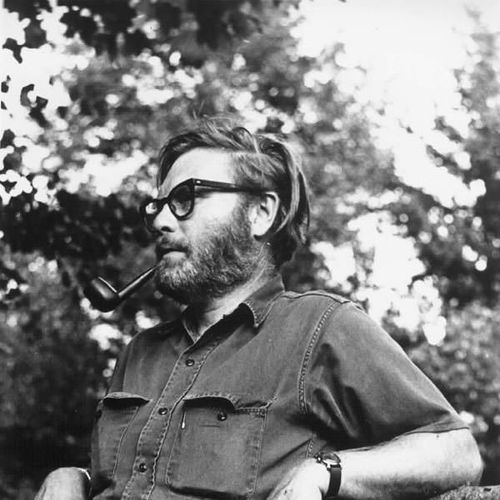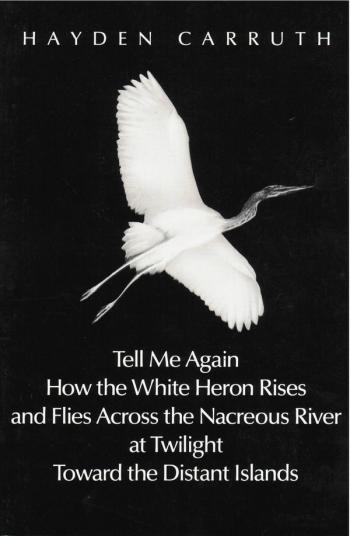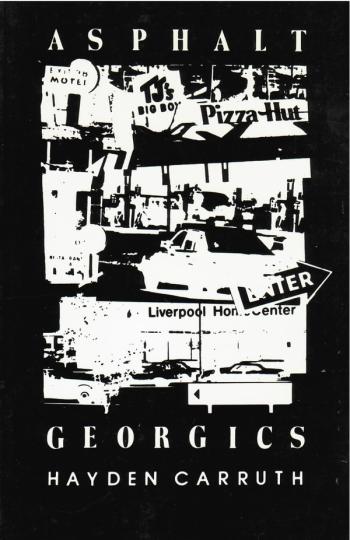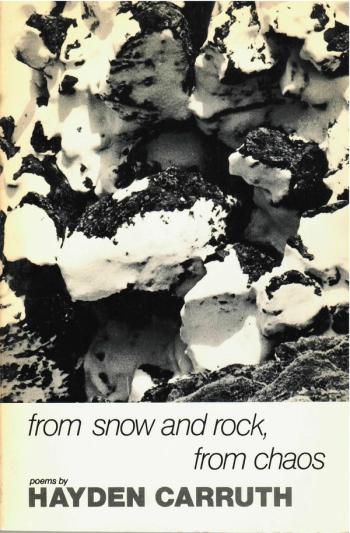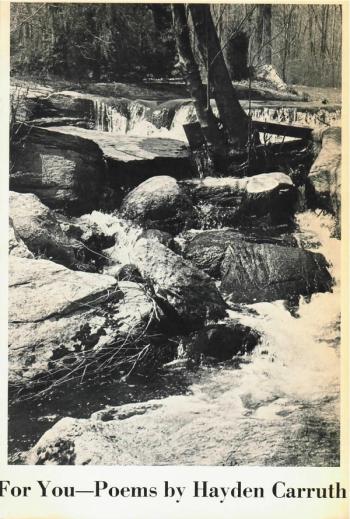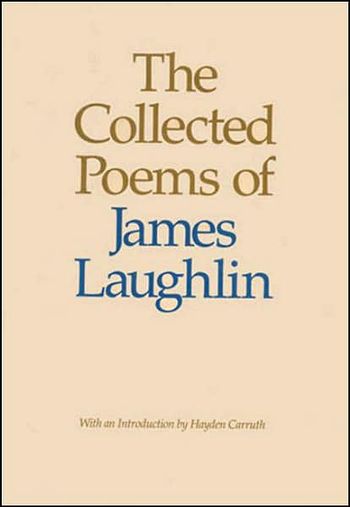Hayden Carruth
Hayden Carruth (1921–2008) was born in Waterbury, Connecticut. The poet earned his AB from the University of North Carolina (1942) and his MA from the University of Chicago (1948). Mr. Carruth was Editor of Poetry Magazine, Associate Editor of the University of Chicago Press, and Project Administrator for Intercultural Publications. Since 1953, he worked freelance (copyediting, typing, proofreading) and reviewed books for Hudson Review, Poetry, The Nation, The New Republic, The New York Times Book Review as well as various other magazines and newspapers. The Bollingen, Guggenheim and National Foundations all awarded Mr. Carruth various fellowships. Carruth passed away in 2008.
